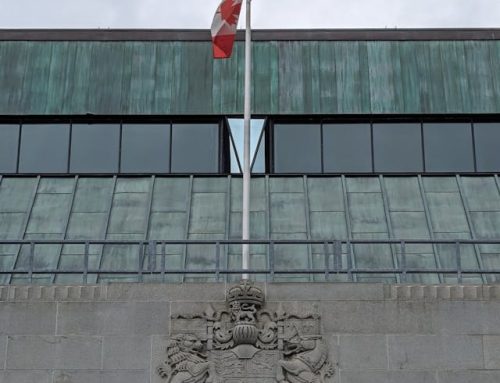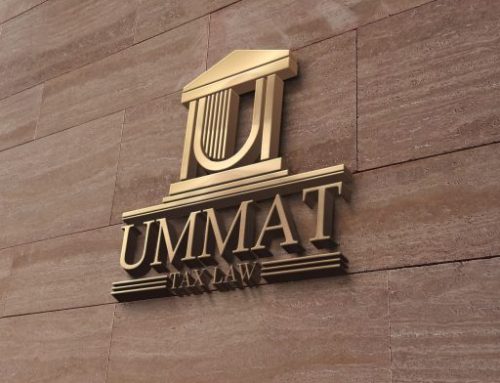TFSA Swap Transactions Considered Tax Avoidance
Louie v. Canada 2019 FCA 255
Background
The Appellant, a sophisticated investor, opened a TFSA account when the rules were implemented in January 2009. She also maintained a trading account and a self-directed RRSP account. Later that year, the Appellant began moving stocks from her trading account to her TFSA to eliminate or defer tax on projected gains. Stocks with projected gains were transferred to the TFSA and stocks with downside risk were moved out. Stocks were transferred in using their lowest market price on the day of transfer and stocks were transferred out using their highest market price.
Because of a legislative amendment in October of 2009 which would tax 100% of the benefit relating to swap transactions, the Appellant ceased her swap activity. The 71 swap transactions entered into by the Appellant lead to her TFSA growing from $5,000 at the beginning of 2009 to $206,615 at the end of that year.
Assessment
The Minister reassessed the 2009, 2010 and 2012 taxation years on the basis that she had received an ‘advantage’ pursuant to subsection 207.01(1) of the Income Tax Act, which provides that a tax is payable in connection with a TFSA if an ‘advantage’ is extended to the holder of the account. An ‘advantage’ is defined as a benefit that is an increase in the total fair market value of the property held in connection with the TFSA if it is reasonable to consider, having regard to all the circumstances, “that the increase is attributable, directly or indirectly, to … a transaction or event or a series of transactions or events that…would not have occurred in an open market in which parties deal with each other at arm’s length and act prudently, knowledgeably and willingly, and had as one of its main purposes to enable a person or a partnership to benefit from the exemption from tax under Part I of any amount in respect of the TFSA…”[1]
The tax is generally considered to be a penalty, since the amount of tax payable by the account holder in respect of the ‘advantage’ is the fair market value of the benefit.
The TCC dismissed the appeal relating to the 2009 taxation year but allowed the appeal in respect of the 2010 and 2012 taxation years on the basis that only the 2009 year lead to an ‘advantage’ in the legislative sense since the swap transactions had been entered into that year. However, any gains in subsequent years could not have resulted from the swap transactions, since the account was in those years subject to regular market forces.
The Appellant appealed the dismissal of the 2009 appeal and the Crown cross-appealed the allowance of the 2010 and 2012 appeals.
Issue
The FCA was tasked with determining whether the TCC erred in finding that a) the swap transactions were part of a series of transactions b) the parties to the series were not dealing at arm’s length and c) one of the main purposes of the transactions was so that the Appellant could benefit from the TFSA tax exemption. The Crown’s issue on cross-appeal was whether the TCC erred by narrowly interpreting the term ‘directly or indirectly’ in its decision to allow the 2010 and 2012 appeals.
Decision & Analysis
The FCA dismissed the Appellant’s appeal and allowed the Crown’s cross-appeal. In so doing, the FCA found that the swaps were part of a series of transactions, despite the fact that swaps could not be planned in advance. The Court found that subsection 248(10) broadens what is ordinarily meant by a ‘series of transactions” because that provision also includes any transaction or event completed in contemplation of the series. Second, the FCA found the TCC did not err by finding that the brokerage and the Appellant were not dealing at arm’s length.
Lastly, the result of the Appellant’s strategy was to “…inflate the value of the TFSA so as to benefit from a tax-free distribution from her TFSA (as opposed to a taxable withdrawal from her RRSP or a taxable gain within her Canadian trading account).”[2] Therefore, the TCC did not err in finding that one of the main purposes of entering into the transactions was to benefit from the TFSA tax exemption.
The FCA then decided the TCC had in fact erred by narrowly interpreting the “directly or indirectly” part of the definition of “advantage”. In the Crown’s view (which was accepted by the FCA), the Tax Court’s interpretation improperly excluded from the scope of an “advantage” any increase in value in a TFSA in subsequent years that was attributable to amounts previously and inappropriately shifted into the TFSA due to improper transactions. The Crown contended that but for the swaps, the Appellant would not have had the requisite capital to engage in the volume and dollar amounts of the share transactions that she did which gave rise to the fair market increases in the TFSA in 2010 and 2012.
Since the Court accepted this argument, the Crown’s cross-appeal was allowed, the Appellant’s 2010 and 2012 appeals were dismissed, and costs were payable by the Appellant to the Crown at both levels.
Call Ummat Tax Law to discuss your TFSA issues. (905) 336-8924.
[1] Subsection 207.01(1) of the Income Tax Act.
[2] Louie v. Canada 2019 FCA 255, at para. 41.




